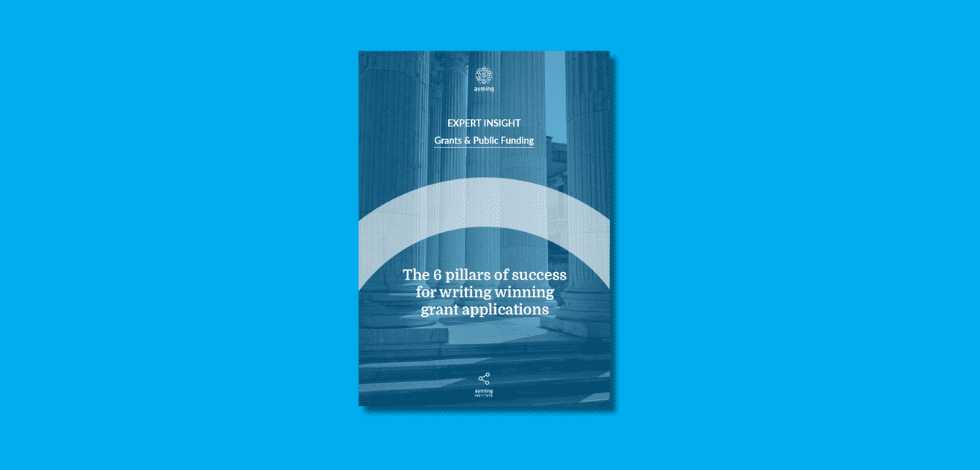While it may be referred to as being a simple tax, there’s nothing simple about VAT.
Whether you’re calculating your VAT returns and liability or recovery from across Europe, there are countless different factors and variables at play that can muddy the waters, create mistakes and potentially lead to costly penalties from HMRC or other tax authorities from across Europe, depending on where the error(s) occurred.
There are plenty of VAT myths out there – Gavin Barker, our UK Head of VAT Services, has dispelled 10 of the more common culprits so they don’t catch you out:
VAT MYTH 1: ‘I’ve made an error on my VAT return – I’m going to get a fine and a penalty.’
This isn’t always the case. The circumstances and nature of the mistake, as well as whether or not HMRC are at a loss due to the error, will all be taken into account.
For instance, certain errors with a net value of £10,000 or less can be adjusted on your next VAT return.
Errors with a net value of between £10,000 and £50,000, that don’t exceed the limit of 1% of Box 6 on your VAT return, may also be included on your next return.
However, it’s worth noting here that HMRC could still assess you at some point in the future. So, if you haven’t had a visit from HMRC for a number of years, and are aware that you’ve made a VAT return error, it’s best you notify them about it sooner, rather than later.
VAT MYTH 2: ‘Post-Brexit, the UK will no longer be governed by EU VAT rules.’
This is true, to a certain extent.
While the Court of Justice of the European Union (CJEU) will no longer have jurisdiction in exiting UK VAT law following Brexit, the Great Repeal Bill White Paper states that failing to follow CJEU case law in the UK’s own legal system would create ‘new uncertainties about the application of VAT.’
Post-Brexit, this could effectively mean that if VAT is overpaid or underpaid due to the UK failing to implement the EU legislation correctly up to the date of leaving the EU, then taxpayers will be entitled to claim, dating back up to four years (the cut-off date for claims is 2023).
VAT MYTH 3: ‘It’s possible to recover VAT on my business entertainment expenses.’
This isn’t true. HMRC only allows tax relief and the claiming of VAT on the cost of entertaining your employees, who have to be on your payroll and being paid a salary.
If you’re entertaining somebody else, then that’s classed as business entertaining, rather than staff entertaining, which means you can’t claim either tax relief or VAT on the cost of entertaining them.
VAT can only be recovered on business expenses that are incurred by an employee, not by a business as a whole.
VAT MYTH 4: ‘VAT is only due when an invoice is issued.’
False. Yes, VAT can be due when an invoice has been issued, but it can also be due once goods have been delivered, payment of a future delivery has been made (on account or deposit) or if the VAT invoice precedes the date before the delivery of the services or goods.
VAT MYTH 5: ‘You don’t have to charge VAT to overseas customers.’
False. B2B sales are accounted for through the reverse charge in Europe, whereas B2C sales are subject to the distance selling thresholds (that vary from country-to-country).
If you breach, or believe you are about to breach, a distance selling threshold in another EU country, you need to register for VAT locally in that country. Non-EU sales can be zero-rated, subject to place of supply rules.
VAT MYTH 6: ‘There’s no point registering for VAT in another EU country – HMRC will never find out.’
Yes, it is important you register for VAT in another EU country. And yes, HMRC can find out.
It’s possible for HMRC to find out about your actions through the European Union’s Mutual Assistance Recovery Directive, which is designed to enable EU tax authorities to cooperate efficiently in the pursuit of unpaid foreign VAT. As a result, cross-border audits, fines, and penalties are becoming increasingly common these days.
VAT MYTH 7: ‘You can reclaim VAT from another EU country on your VAT return.’
False. If you do, then this would be classed as an error.
If VAT has been correctly charged (based on place of supply rules), then it may be possible for you to recover the VAT in the country where it was incurred, subject to local guidelines.
But if you shouldn’t have been charged VAT, you should request for the invoice to be reissued without VAT, account for it as a reverse charge or acquisition on your VAT return and, subject to partial exemption, recover it.
VAT MYTH 8: ‘VAT is simple: It’s just about inputs and outputs at 20%.’
Many people still believe VAT is a simple tax, including the Chancellor of the Exchequer, Anthony Barber, who made this claim when it was first introduced in the UK back in 1973.
Somebody also recently said to me that VAT is as clear as black as white, as it just involves focusing on inputs and outputs at 20%. If only that were the case.
Contrary to popular belief, VAT isn’t simple. Yes, in many instances, businesses have straight-forward transactions, but you just have to look at the legislation and UK and European case law to see there are many grey areas that are constantly being scrutinised, reviewed and refined.
VAT MYTH 9: ‘The reverse charge VAT liability is taken into consideration when the VAT registration threshold is considered.’
True, although it’s often missed. Businesses must take VAT registration reverse charges into account, if they’re not VAT registered, but are buying in services from abroad (without VAT being charged).
The value of these services then needs to be taken into account when deciding if the VAT registration threshold has been exceeded or not.
VAT MYTH 10: ‘Financial records aren’t sufficient support for VAT records.’
Many businesses believe that financial records, such as their bank statements, can be used to provide HMRC with details of their VAT affairs.
However, what many companies don’t realise, is that financial accounting records are based on incomes due or earned, whereas VAT is recognised and due whether you have or haven’t been paid for goods or services.
There are countless myths about VAT out there, the points listed above provide a small snapshot of just some of the pitfalls we’ve encountered in recent months that tend to catch companies out. While it’s best practice to stay on top of the latest legislation and regulations governing UK VAT affairs, it’s also wise for businesses to be mindful of the many myths out there – if they don’t want to fall foul of them, that is.













No Comments